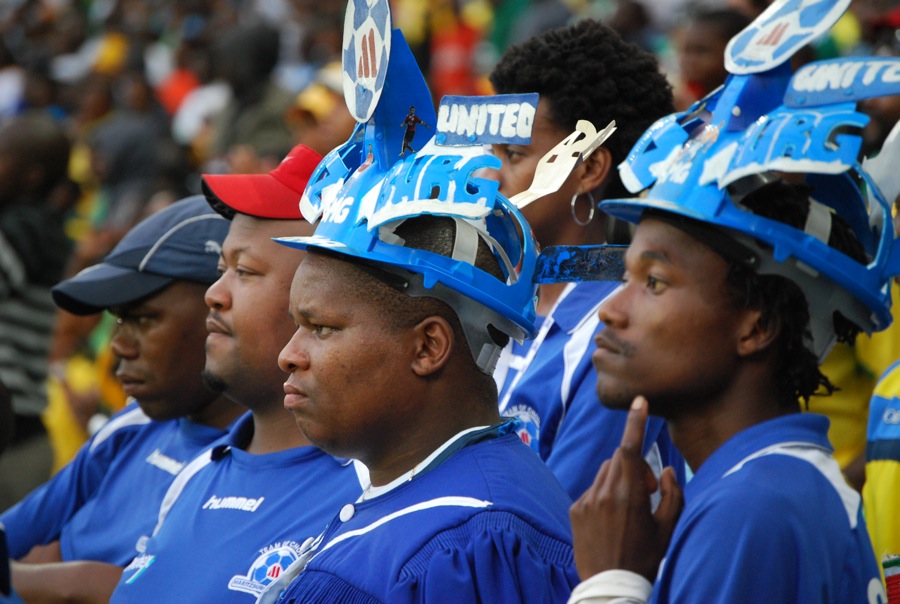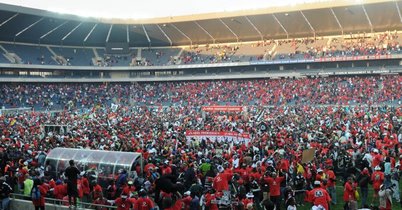By Mohlomi Maubane in Soweto, South Africa
A few days before the 2010 World Cup kicked off in South Africa, the New York Times Magazine published an insightful piece on football development focused on Ajax Amsterdam’s famous youth academy. “How a Soccer Star is Made” by Michael Sokolove is a must read for the myopic beings who masquerade as the game’s sole custodians in South Africa and who have turned fiddling while Rome burns into an art. I was reminded of the NYT article during this past weekend’s dramatic finish of the 2010-2011 PSL season.
In the story, Sokolove recounts his encounter with David Endt, manager of the Ajax first team and a former Ajax player. Endt also serves as the team’s unofficial conscience and historian. His office is a mini-museum and on his desk was a pair of scissors, once allegedly used by an Ajax player to attack a teammate in a dressing room squabble a few decades back.
If Orlando Pirates — the Soweto giants crowned PSL champions on Saturday — had a museum, the orange shirt of one of Ajax’s most decorated products would find a place in it. For months, Pirates’ coach Ruud Krol’s bright shirt has been the source of jokes among many soccer scribes in South Africa. However, for Krol, who played 339 games for Ajax and 83 times for The Netherlands (including two World Cup finals), the orange shirt was no laughing matter. Not only is orange his national colour, but it was also a good luck omen. And you sure need a dose of good luck to stay at the helm of the Mighty Bucs.
The last two times Pirates were crowned league champions, the victorious coaches were fired early in the following season. A manager can win the league at Pirates, but if the side is deemed not to be suitably entertaining then he will “part ways with the team amicably.” For all its fascination with the English game, the South African football fraternity has not learned some important lessons from it.
Alex Ferguson has been to these shores three times with his Red Devils in the past twenty years. In that same period, Pirates have employed over thirty head coaches, none serving longer than Krol’s three years. Needless to say, the constant chopping and changing had a negative effect on the team’s performance. Success has come in dribs and drabs, and when the 2010-2011 season started, Pirates had not won a major tournament in eight years.
That ghost was laid to rest in October 2010 as Pirates annexed the MTN 8. At Pirates, however, winning a trophy is a double-edged sword. It does offer some reprieve, but it also heightens expectations. And so when Krol guided the Mighty Bucs to the Telkom Cup final only to lose brutally 3-1 to bitter Soweto rivals Kaizer Chiefs, his head was on the chopping block. In fact, Krol’s head has been on the block every time a point was dropped. But in retrospect, that Telkom Cup derby was the turning point in the Pirates’ season.
In a May 23 radio interview, Krol revealed that at the first training session after the loss to Chiefs in December, he called his players around and told them that, painful as it was, that was not the last loss they were going to suffer in their careers. And anyway, the season was far from over, what was important was how they were going to finish at the end of the season. The team duly heeded his call and went on a sixteen-game unbeaten spree, with Krol egging them on from the sidelines reliably clad in his lucky orange shirt.
With five league matches left to play, Pirates Nation prematurely predicted that “We are going to win the league,” despite several other teams being in the title chase. A 3-0 drubbing by Ajax Cape Town — a club founded in 1999 as a joint venture between Ajax Amsterdam and a South African group — ended the Bucs’ unbeaten run on March 16 . Suddenly, being crowned champions did not look like a foregone conclusion. Pirates won the next two games so that with three games left four teams — Pirates, Chiefs, Ajax, and Sundowns — had a chance to win the league. This was no time to blink.
But Pirates blinked. They lost 1-0 to Supersport at home, and needed a 92nd minute equalizer to draw 1-1 away at Santos. On the final day of the season, the team’s destiny was not in their hands. A win against Maritzburg United at home would hand Ajax Cape Town their first league title. If Ajax drew and Pirates won, however, Pirates would be the champions on goal difference. There was also the small matter of a so-called dark horse in the form of Kaizer Chiefs, arithmetically still in the running.
Despite my initial boycott of PSL games due to the cover charge being doubled at the beginning of the season, I have regularly attended Pirates’ games at Orlando Stadium this season. However, I could not conjure up the courage to go to the stadium for the deciding match this past Saturday for fear of having my heart broken into a million pieces. Too painful to imagine.
But somehow, someway, Ajax failed to muster a win. They led 1-0 at the break, only for Maritzburg to claw their way back finding an equalizer and, lo and behold, taking the lead midway through the second half. Meanwhile in Soweto, Golden Arrows were holding Pirates to a 1-1 draw. Then, in the 84th minute, Isaac Chansa let rip from outside the box with a scorcher of a goal. At Cape Town Stadium, three minutes later, Ajax drew level. One more goal and Ajax would win the title.
It was not to be. Ezimnyama Ngenkani held on and were crowned champions in the most dramatic fashion since the PSL began in 1996-97. When the referee blew the final whistle at Orlando Stadium, he signaled the start of wild celebrations. Thousands of Buccaneer supporters ran onto the pitch to mob Krol. The Dutch coach may not know that supporters mobbed many of his predecessors in years gone by, usually after an undesired result when the messages being passed on were nothing like the pearls of affection lavished on Krol on Saturday.
South Africa in general, and its football fraternity in particular, should learn from Krol’s sojourn at Pirates. As famed playwright Athol Fugard recently reiterated, we pay scant respect to growth: “Everything must be instant — instant sex, instant coffee, instant satisfaction. Nobody is prepared to plant a seed and wait.” There are no short cuts to success. Let’s plant seeds, nurture them, and let them grow. It’s the only recipe for long-term success, and it is the lesson we must learn from Krol’s success with Pirates.
And that orange shirt, which was missing two buttons after the melee at Orlando Stadium, must be framed and hung in the office of the Orlando Pirates Chairman. Football, bloody hell!!
Tag: PSL
Unbelievable finish! Ajax CT needed to win at Cape Town Stadium against lowly Maritzburg United, but only managed a 2-2 draw. Meanwhile Orlando Pirates took care of business at Orlando Stadium, beating Golden Arrows 2-1 thanks to an 84th-minute goal by substitute Isaac Chansa. The video captures the excitement in Soweto. We can only imagine the despair in Cape Town.
RIP Telkom Charity Cup
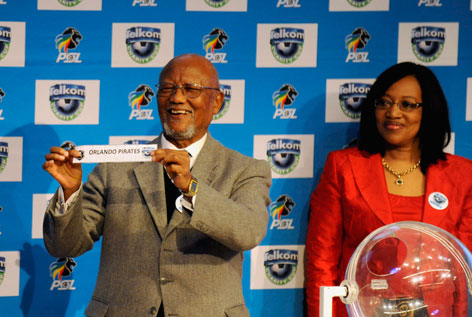
Guest blog post by Mohlomi Maubane in Soweto, South Africa
One of South Africa’s iconic tournaments, the Telkom Charity Cup, is no more. PSL chairman Irvin Khoza’s announcement this week brought down the curtain on what was arguably one of the most loved tournaments in the country.
The Charity Cup made its debut in 1986 as the Iwisa Maize Meal Spectacular. This one-day tournament quickly established itself as the domestic season opener. It featured four teams battling off in the semifinals, with the victors meeting in the final later in the day. Local football fans voted for the four teams that took part in the tournament, making the Charity Cup the most interactive professional soccer platform in South Africa. It also served to gear-up fans for the start of the new season.
And now the Charity Cup is no more, with rather puzzling reasons being given for its demise. Khoza explained that the Charity Cup was cancelled to reduce fixture congestion and player fatigue. He added that other knockout tournaments could not be cancelled as they served as qualifiers for international competitions.
Utter nonsense. First, how is canceling a one-day tournament going to reduce fixture congestion? Second, how can players’ fatigue be adversely affected by a one-day tournament at the start of the season? Third, PSL teams have long been apathetic toward African club competitions such as the Champions League and Confederation Cup. Most South African teams prefer to bypass the chance for African adventure for short-term riches at home. So it is disingenuous at best to claim that participation in continental tournaments requires burying the Charity Cup.
If the way to tell when a politician is lying is to see their lips moving, then everything said by a football administrator in South Africa should be taken with a truckload of salt. If there was a tournament worthy of being taken off the local football calendar, it is the Vodacom Challenge. This pre-season tournament features the most popular teams in the country — Orlando Pirates (owned by Khoza) and Kaizer Chiefs — playing against English Premier League opposition. Even though it also essentially entails three matches, it lasts an entire week and no other matches are played when it’s contested.
Methinks the logical reason why the Charity Cup and not the Vodacom Challenge fell to the proverbial axe is because the latter lines up the pockets of some local football heavyweights, while the former mainly benefits numerous charity organizations in the country. Talk about giving a new meaning to ‘charity begins at home’.
Pirates Soccer League
Maritzburg United returned to their home ground to face Orlando Pirates just five days after losing a “home” League Cup semifinal to the Buccaneers in Durban. Despite the change of venue the visitors from Soweto won again. Final score: Maritzburg United 1, Orlando Pirates 2. Check out the video for goals and the Harry Gwala stadium vibe. Full highlights here.
PSL = Premier Soweto League?
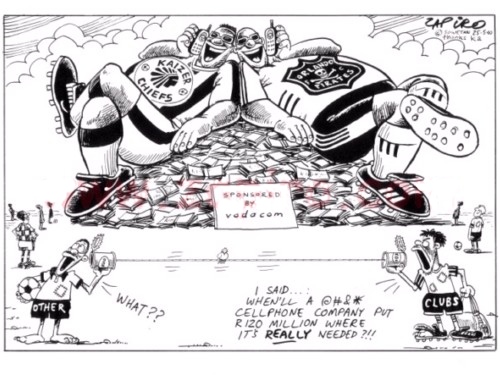
Orlando Pirates and Kaizer Chiefs will meet in the Telkom Knockout Cup final at Soccer City on December 4. That’s the fifth Soweto classic of the 2010-11 season, and it’s not Christmas yet.
With the rest of the PSL attracting small crowds after the 2010 World Cup, it is once again the two most popular and richest clubs in South Africa which are expected to generate excitement, entertainment and, most importantly, revenue.
Supporters of Pirates and Chiefs claim, with some legitimacy, that their sides fully earned the right to play in the League Cup final. Bucs fans point to their side’s pair of impressive 3-0 away wins against SuperSport United and Maritzburg United on the road to the final. The Amakhosi faithful proudly note how Chiefs’ defense has not conceded a goal in the entire competition.
But the recent controversy surrounding the selection of venue for the Maritzburg United – Pirates semifinal strongly suggests that the football-media-business complex that runs the seventh-richest league in the world massaged the outcome so that the final would feature the Soweto derby.
The story goes something like this: Maritzburg United’s shock victory against Sundowns in the quarterfinal set up a home match against Pirates. By chance, the November 21st Telkom Cup semifinal was scheduled five days ahead of a league clash between the same sides at Harry Gwala Stadium in Pietermaritzburg.
Suddenly, the PSL announced that, due to safety and security concerns at Harry Gwala, the Cup semifinal was being moved to Chatsworth stadium in Durban. League officials produced a letter from South African Police Force headquarters that allegedly prevented them from approving the 12,000-seat stadium as a Cup venue. The league’s decision proved deeply unpopular in KwaZulu-Natal’s provincial capital.
In response, Maritzburg United officials flew to Johannesburg to meet with the PSL in a last-ditch attempt to move the game back to the club’s home ground. Club officials produced an official statement by the Pietermaritzburg police that guaranteed spectators’ safety at the grounds and underlined how capacity crowds against Pirates in February and Chiefs in September were handled efficiently and without incident. Moreover, Maritzburg United’s representatives highlighted the PSL’s contradictory position, which deemed Harry Gwala stadium safe for the PSL match on Friday, November 26, but unsafe for the Cup tie.
The sending off of coach Ernst Middendorp in the 43rd minute and of substitute Felix Obasa in the 83rd simply confirmed Maritzburg’s worst fears. “For a small but competitive team like Maritzburg it’s tough enough to play Pirates on a level playing field,” wrote Marc Strydom of The Witness, Pietermaritzburg’s daily newspaper. “But when the odds are stacked against you by the PSL removing home-ground advantage then it’s even tougher.”
As the “home fans” left Chatsworth stadium, they could be excused for wondering whether PSL stood for “Premier Soweto League.”
Kaizer Chiefs Boss Against Vuvuzelas
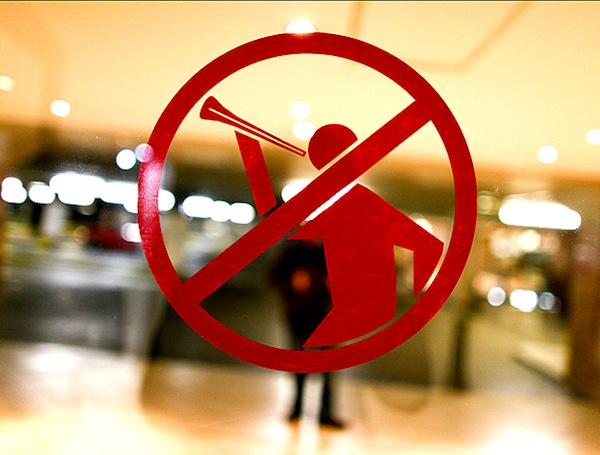
Four months ago the vuvuzela was the symbol of South African football and the Africanization of the World Cup. Now the founder and owner of Kaizer Chiefs — Kaizer Motaung — says publicly that he does not like vuvuzelas at matches.
This statement came in the wake of a 500,000 rand fine imposed on Chiefs by the Premier Soccer League after their fans threw two vuvuzelas (and cabbage) onto the pitch during their MTN8 semi-final loss against Orlando Pirates at Soccer City on September 26. PSL prosecutor Zola Majavu said: “It is only my opinion, but if this trend continues we will have to act more strongly.”
“Vuvuzelas take something away from our games,” said Motaung. “To me, vuvuzelas are just a noisy thing people like, but I prefer to watch fans like Bloemfontein Celtic sing and dance and support their team.”
I’ve noticed fewer vuvuzelas at PSL matches recently so perhaps South African fans are beginning to tire of the decibel-blasting plastic horn. A reader’s comment on the sport24 web site may be indicative that the tide is turning: “True Motaung – Vuvuzelas are a noise making gadget that does not contribute to the game. But do not ban it Majavu. Sooner [rather] th[a]n later people will start leaving their Vuvuzelas at home and start singing at the stadiumz.”
Postings on The Sowetan web site were split on the issue. On the one hand, patriotic populists like Popeye ask: “How can you ban vuvuzela? Recently It has been added to Oxford dictionary . . . [It is] Proudly South African. Rich people can not change the world.” On the other hand, nostalgics like Mthondosheshayo agree with Motaung: “vuvuzelas are not adding anything to our soccer. What happened to the singing, dancing and whistling in the stadiums?”
Writing on kickoff.com — the online edition of the country’s leading football magazine — KaMashobana reminded everyone of the “invented tradition” of the vuvuzela: “Ban them or not, the only truth is Vuvuzelas are not part of our culture. One Boer [Afrikaner] who came with the idea of making money decided to use us. Its only a fool who can stand up and say this instrument is our culture. Where was it in 1996?” when Bafana Bafana triumphed in the African Nations Cup.
Other supporters criticized Motaung’s motives for backing a potential ban of the vuvuzela from South African grounds. “Keep your supporters in check instead of wanting to dictate terms to the rest of us,” wrote KebraNagast. “If you hadn’t gotten the fine you probably wouldn’t have said anything.” Other fans pointed to local football’s culture of defiance to suggest that a ban would not work. “Good Luck with that,” stated a user on the sport24 site. “We all know that in this country we have problems with authority, and the more people tell us not to do things, the more we like to do it.”
Ultimately, a voluntary halt to “doing vuvuzela” would be preferable to prohibition in a country where press freedom is under threat by the proposed Media Appeals Tribunal, the Protection of Information Bill, and the intimidation of reporters.
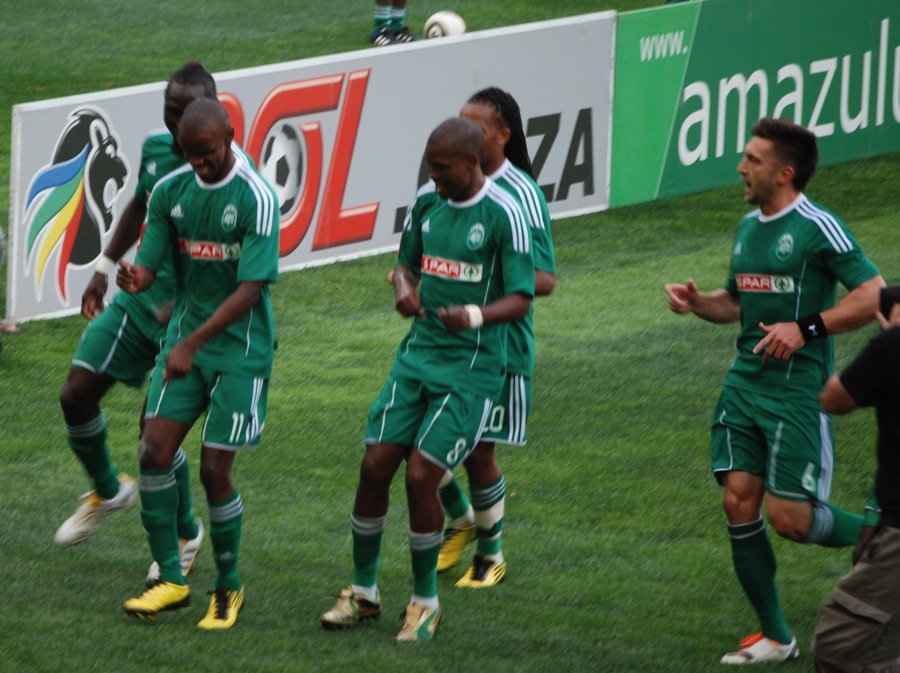
The PSL season in KwaZulu-Natal opened with an exciting goal-filled derby in front of a small but vociferous crowd at Mabhida Stadium in Durban. Hosts Amazulu nipped Maritzburg United 3-2, making us temporarily forget about the countrywide strikes that are turning patients away from hospitals, keeping students out of school, and possibly shutting our water off tomorrow.
12 minutes into the match a free kick finds the head of a diving Ayanda Dlamini who loops it over Shu-Aib Walters: 1-0 Amazulu.
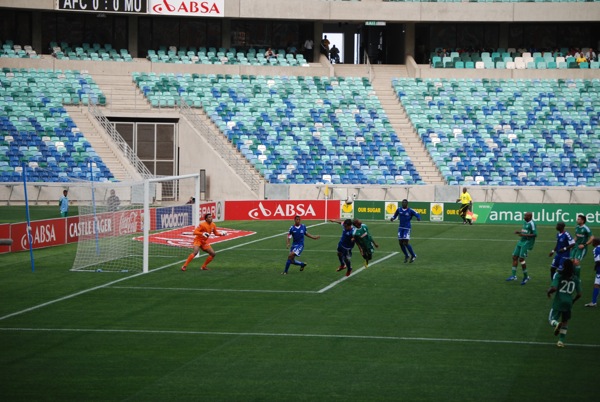
Ten minutes later Namibian striker Rudolph Bester drew Maritzburg United level courtesy of a goalkeeping blunder off another set play. Traveling fans were quieted once more after Majoro headed in a perfectly calibrated Hadebe cross on 38 minutes. 2-1 at the break.
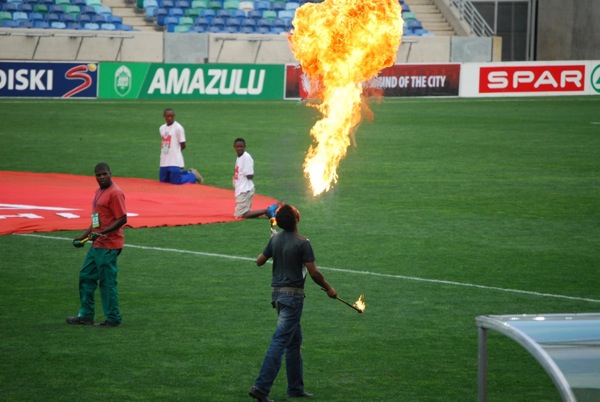
The second half had two gems. 53rd minute: Mkhonza scores a spectacular own goal — a lob over Mzimela from 30 meters out! 91st minute: Dlamini finishes off a sweet move with a sterling game-winning strike just inside the box. The yin of Usuthu fans’ celebration versus the yang of Maritzburgers’ grief.
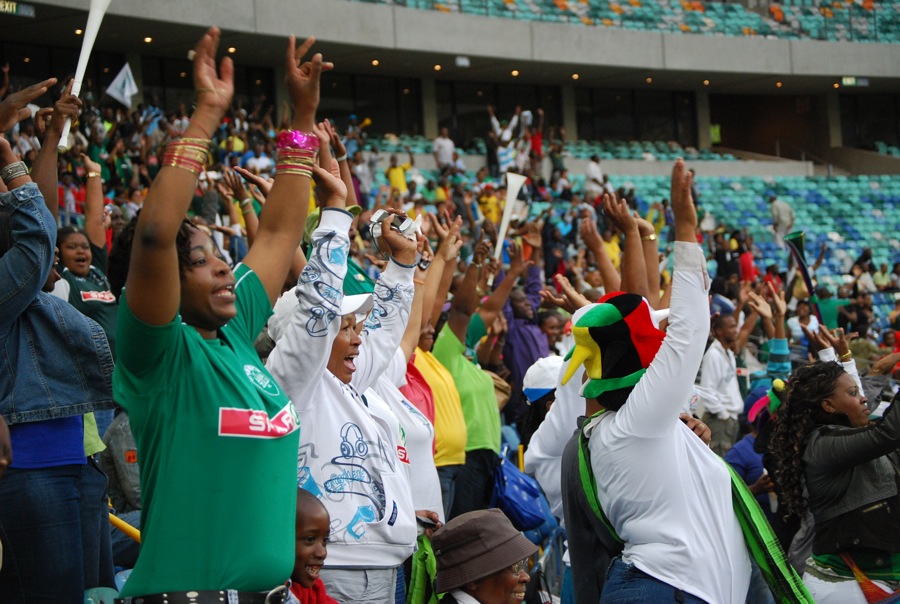
While far from a technical and tactical masterpiece, this derby had lots of goals, blunders, and an emotionally charged finish. Well worth the price of admission!
